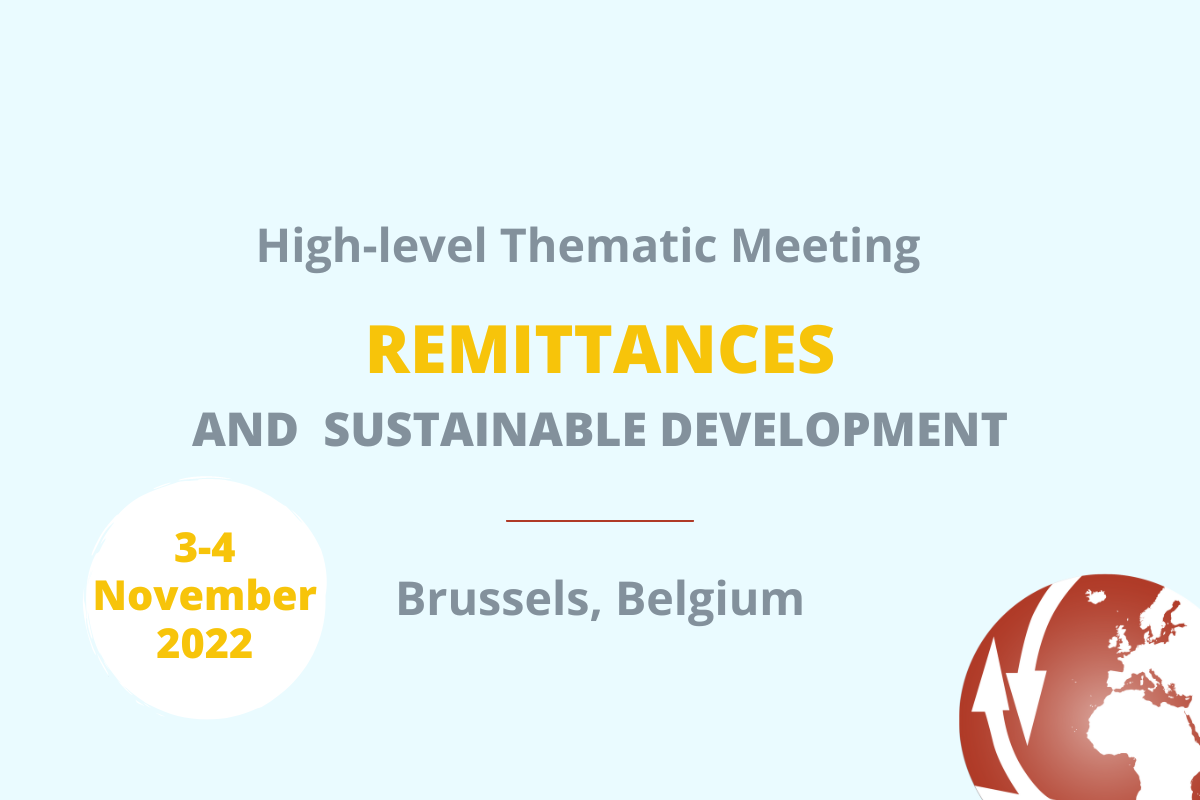On November 3rd & 4th, in Brussels, in the framework of the Rabat Process, and under the auspices of the Spanish Presidency, the Kingdom of Belgium and the Republic of Ghana organised a thematic meeting on the state of play of remittances and their interlinkages with sustainable development.
Through its operational approach, the workshop highlighted the current
challenges and opportunities emerging in the reality of remittances.
The event was inscribed in the Marrakesh Action Plan and builds on the thematic meeting on ‘Diaspora Remittances and Sustainable Development’ held in Abuja in November 2019
Mirana Rajoharison, Executive Director of ADEPT, intervened at a thematic roundtable on “The role of actors in the field of remittances”, and highlighted the different financial channels used by the diaspora and migrants to send remittances to their countries of origin. The first channel is the formal one; banks, which requires having a bank account in the host country as well as the presence of a bank branch in the country of origin; which is not always the case. The second channel is telephone banking with applications such as Western Union, Tap Tap Send, and other operators; however, mobile money is not always accepted. Finally, the third means is informal; “the suitcase”; the travel with the funds in cash or by the passage of an intermediary already present in the host country. Mirana Rajoharison also highlighted the problems of accessing these channels, which are determined by the situation of the person sending the funds; to what extent is he or she financially included in the host country as well as the situation of the country of origin.
The overarching objective of this High Level Meeting was to bring together Rabat and Khartoum Processes partners, experts from the public and private sector, aiming at improving their understanding of remittances and sustainable development. At the
same time, it offerd a space of exchange where it promoted mutual learning that could lead to the replication of successful initiatives and the creation of new synergies.
ADEPT can participate in the collection of information regarding remittance studies and provide qualitative data on habits, amounts, frequency of sending, choice and reason for the channel. Indeed, ADEPT is able to identify and contact influential people within the various African diaspora communities to obtain this information.



